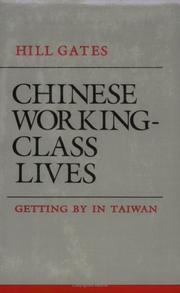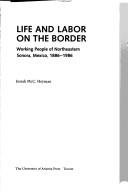| Listing 1 - 10 of 423 | << page >> |
Sort by
|
Book
ISBN: 1573668443 9781573668446 1573661775 9781573661775 9781573661775 Year: 2014 Publisher: Tuscaloosa, Alabama : FC2,
Abstract | Keywords | Export | Availability | Bookmark
 Loading...
Loading...Choose an application
- Reference Manager
- EndNote
- RefWorks (Direct export to RefWorks)
Vignettes of a middle-class American family told through lists, each reflecting their obsessions, their complaints, their desires, and their humanity.A suburban family of four- a man, woman, boy, and girl- struggle through claustrophobic days crowded with home improvement projects, conflicts at work and school, a job loss, illnesses, separation, and the wearying confrontation with aging. The accoutrements of modern life- electronic devices and vehicles- have ceased to be tools that support them and have become instead the central ful
Middle class --- Families --- Bourgeoisie --- Commons (Social order) --- Middle classes --- Social classes --- Social conditions
Book
ISBN: 3030769437 3030769429 Year: 2021 Publisher: Cham, Switzerland : Palgrave Macmillan,
Abstract | Keywords | Export | Availability | Bookmark
 Loading...
Loading...Choose an application
- Reference Manager
- EndNote
- RefWorks (Direct export to RefWorks)
Middle class --- History --- Bourgeoisie --- Commons (Social order) --- Middle classes --- Social classes --- Social conditions
Book
ISBN: 135025116X 1783607130 0862324513 1783607157 Year: 2016 Publisher: London, England : [London, England] : Zed Books, Bloomsbury Publishing,
Abstract | Keywords | Export | Availability | Bookmark
 Loading...
Loading...Choose an application
- Reference Manager
- EndNote
- RefWorks (Direct export to RefWorks)
Across Africa the narrative of "Africa rising" has taken root in a burgeoning middle class. Ambitious and increasingly affluent, this group symbolizes the values and hopes of the new Africa, and they are regarded as important agents of both economic development and democratic change. This narrative, however, obscures the complex and often ambiguous role that this group actually plays in African societies. The Rise of Africa's Middle Class brings together a diverse range of economists, political scientists, and development experts to provide a much needed corrective, overturning the received wisdom within development circles and providing a fresh new perspective on social transformations in contemporary Africa. Featuring a wide array of case studies from across sub-Saharan Africa and covering highly topical issues, including black middle-class support for the ANC in South Africa and anti-government activism in Nigeria, this collection of essays is a timely, on-the-ground look at the realities behind the idea of Africa rising.
Middle class --- Development studies --- Bourgeoisie --- Commons (Social order) --- Middle classes --- Social classes --- Social conditions

ISBN: 0801494613 9780801494611 0801420563 9780801420566 9781501719912 1501719912 1501719920 1501727907 Year: 2018 Publisher: Cornell University Press
Abstract | Keywords | Export | Availability | Bookmark
 Loading...
Loading...Choose an application
- Reference Manager
- EndNote
- RefWorks (Direct export to RefWorks)
Taiwan's working class has been shaped by Chinese tradition, by colonialism, and by rapid industrialization. This book defines that class, explores that history, and presents with sensitive honesty the life experiences of some of its women and men. Hill Gates first provides a solid and informative introduction to Taiwan's history, showing how mainland China, Japan, the convulsions of twentieth-century wars, and the East Asian economic expansion interacted in forming Taiwanese urban life. She introduces nine individuals from Taiwan's three major ethnic groups to tell the stories of their lives in their own words. The narrators include a fortuneteller, a woman laborer, and a retired air force mechanic. A former spirit medium and a janitor are among the others who speak.
Working class --- -Commons (Social order) --- Labor and laboring classes --- Laboring class --- Labouring class --- Working classes --- Social classes --- Labor --- Employment --- Taiwan --- Social conditions --- -Social life and customs --- -Working class --- -Taiwan --- Commons (Social order) --- Social life and customs --- Social & cultural anthropology
Book
ISBN: 1439917604 9781439917602 Year: 2018 Publisher: Philadelphia, Pennsylvania : Temple University Press,
Abstract | Keywords | Export | Availability | Bookmark
 Loading...
Loading...Choose an application
- Reference Manager
- EndNote
- RefWorks (Direct export to RefWorks)
The first quarter of the twentieth century was perhaps the most dramatic and consequential period for the international working class. Corporate control was consolidated and centralized. The workplace began to be extensively reorganized by Taylorist and later Fordist methods. Revolutions, factory occupations, and new forms of workers' control and industrial democracy followed in the wake of World War I. Revolutionary industrial unionism challenged previous organizations, and new communist parties contended with Social Democracy for the political allegiance of the working classes. In this crucible of struggle and social transformation, many of the most influential political and social theories were forged: not only those of Lenin and Kautsky, but also Gramsci and Lukacs, Korsch and Austro-Maxism, Michel and Weber. The meaning of both democracy and socialism has remained contested ever since. The comparative and case studies in this collection offer a major reinterpretation of this crucial period in working class history in the United States, Europe, and Soviet Russia. They combine recent interests of historians and social scientists in the labor process, social history "from the bottom up," the mobilization of social movements, the world system and international state competition with more traditional concerns about organization, theory and politics.
Working class --- History --- Commons (Social order) --- Labor and laboring classes --- Laboring class --- Labouring class --- Working classes --- Social classes --- Labor --- Employment

ISBN: 0816537798 0816512256 9780816537792 Year: 1991 Publisher: Tucson : University of Arizona Press,
Abstract | Keywords | Export | Availability | Bookmark
 Loading...
Loading...Choose an application
- Reference Manager
- EndNote
- RefWorks (Direct export to RefWorks)
For thousands of Mexican laborers, life among the United States border represents an opportunity both to earn wages and to gain access to consumer goods; for anthropologist Josiah Heyman this labor force presents an opportunity to gain a better understanding of working people, "to uncover the order underlying the history of waged lives." Life and Labor on the Border traces the development of the urban working class in northern Sonora over the period of a century. Drawing on an extensive collection of life histories, Heyman describes what has happened to families over several generations as people have left the countryside to work for American-owned companies in northern Sonora or to cross the border to find other employment. Heyman's work dispels the notion that border inhabitants are uniformly impoverished or corrupted by proximity to the United States. These life stories instead convey the positive sense of people's goals in life and reveal the origins of a distinctive way of life in the Borderlands. This project also includes a new reflective essay written by the author in 2021.
Working class --- Commons (Social order) --- Labor and laboring classes --- Laboring class --- Labouring class --- Working classes --- Social classes --- Labor --- Employment

ISBN: 0807876291 9780807876299 0807828823 9780807828823 0807855537 9780807855539 9798890873231 Year: 2004 Publisher: Chapel Hill ; London : The University of North Carolina Press,
Abstract | Keywords | Export | Availability | Bookmark
 Loading...
Loading...Choose an application
- Reference Manager
- EndNote
- RefWorks (Direct export to RefWorks)
Jonathan Daniel Wells contests the popular idea that the Old South was a region of essentially two classes (planters and slaves) until after the Civil War. He argues that, in fact, the region had a burgeoning white middle class that had a profound impact on southern culture, the debate over slavery, and the coming of the Civil War.
Middle class --- Bourgeoisie --- Commons (Social order) --- Middle classes --- Social classes --- History --- Social conditions --- Southern States --- Social conditions. --- Economic conditions.
Book
ISBN: 1443812307 9781443812306 1443805629 9781443805629 Year: 2009 Publisher: Newcastle upon Tyne, U.K. : Cambridge Scholars Pub.,
Abstract | Keywords | Export | Availability | Bookmark
 Loading...
Loading...Choose an application
- Reference Manager
- EndNote
- RefWorks (Direct export to RefWorks)
Why wasn't there a successful bourgeois revolution in Russia? Was it because Russian capitalists were too servile in their relationship Other the Tsarist autocracy? Or was it because Russian states (Tsarist, republican and Soviet) were just too strong? This book is a political history of the Russian capitalist class from 1850 to 1917 that seeks to answer these questions. The book covers the consistent opposition of the Russian bourgeoisie to the Tsarist autocracy up to and including the revol...
Middle class --- Bourgeoisie --- Commons (Social order) --- Middle classes --- Social classes --- History. --- Social conditions --- Russia --- Soviet Union --- Politics and government
Book
ISBN: 1626562156 1626562164 9781626562158 9781626562165 9781626562141 1626562148 1306901855 9781306901857 Year: 2014 Publisher: San Francisco, California : Berrett-Koehler Publishers, Inc.,
Abstract | Keywords | Export | Availability | Bookmark
 Loading...
Loading...Choose an application
- Reference Manager
- EndNote
- RefWorks (Direct export to RefWorks)
Peter Barnes argues that because of globalization, automation, and winner-take-all capitalism, there won't be enough high-paying jobs to sustain America's middle class in the future. Therefore, to survive economically, our middle class needs-and deserves-a supplementary source of nonlabor income.To meet this need, Barnes proposes to give every American a share of the wealth we own together- starting with our air and financial infrastructure. These shares would pay dividends of several thousand dollars per year-money that wouldn't be welfare or wealth redistribution but legitimate property inco
Middle class --- Equality --- Sustainable development --- Bourgeoisie --- Commons (Social order) --- Middle classes --- Social classes --- Social conditions. --- Social conditions
Book
ISBN: 9004428984 9004428976 9004428968 9789004428980 9789004428973 Year: 2020 Publisher: Leiden ; Boston : Brill Sense,
Abstract | Keywords | Export | Availability | Bookmark
 Loading...
Loading...Choose an application
- Reference Manager
- EndNote
- RefWorks (Direct export to RefWorks)
Workers’ Education in the Global South explores the historical development of radical workers’ education in South Africa as one particular strand within the broader tradition of radical adult education. Drawing on the theoretical resources of Activity Theory, Gramsci, Freire and others, it investigates the key features of workers’ education as a form of pedagogy with a unique history and logic of practice, and explores how it has been shaped by its location within labour and other social movements as well as its ‘southern’ location within the global political economy. Successive chapters explore its counter-hegemonic but contested purposes, its knowledge practices that seek to overcome the historical divide between intellectual and manual labour, and a pedagogy which often assumes didactic forms but which retains a democratic character through its embeddedness in working class experience. It illustrates the rich processes of experiential learning that happen through day-to-day organising, in workers’ cultural activity as well as through mass action. It argues that this tradition of workers’ education currently stands at a crossroads, as global neoliberal market policies and post-apartheid education and training policies threaten to undermine its radical social vision, and concludes by offering ideas on how this tradition of radical workers’ education might be renewed.
Working class --- Commons (Social order) --- Labor and laboring classes --- Laboring class --- Labouring class --- Working classes --- Social classes --- Labor --- Education --- Employment
| Listing 1 - 10 of 423 | << page >> |
Sort by
|

 Search
Search Feedback
Feedback About UniCat
About UniCat  Help
Help News
News